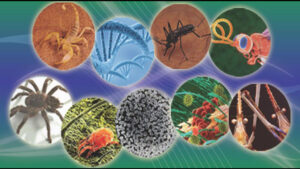According to the World Health Organization (WHO), the term encompasses a heterogenous group of 20 prevalent diseases mainly in tropical areas and in the poorest regions of the planet, where the safety of water, sanitation, and access to health care are far from optimal.
They are neglected because they are largely absent from the global health agenda, receive little funding, and are associated with stigma and exclusion, leading to devastating social, economic, and health consequences.
Among them are Buruli ulcer, Chagas disease, dengue, chikungunya, leprosy, rabies, scabies and trachoma.
Despite the difficulties inherent in their control, the WHO set ambitious goals for these diseases, including their control, elimination as a public health problem, suppression of transmission, and global eradication.
According to data from the agency, progress has been made in the last decade, since the population that needs interventions against NTDs decreased by 25 percent between 2010 and 2021, from 2,190 to 1,650 million.
By the end of 2022, 47 countries had eliminated at least one NTD, and from 2015 to 2019, more than 1 billion people a year received treatment for at least one of these conditions.
Despite the current Covid-19 pandemic, the NTD roadmap aims to leave no one behind, the WHO highlighted.
It moves from an approach based on vertical programs to transversal solutions, through smarter investments with which to improve health and well-being by 2030.
Among the main global goals for 2030 are: to reduce by 90 percent the number of people who require treatment for NTDs, to reduce the disability-adjusted life years related to these diseases by 75 percentage points, and to eradicate two of them (dracunculiasis and chirps).
Every January 30, the World Day of Neglected Tropical Diseases is celebrated in order to raise awareness among the population of the planet about the threat of these diseases that can be prevented and treated.
On the other hand, it is intended to join efforts in the formulation and execution of policies aimed at improving sanitation conditions and access to health systems, especially in areas or regions in conditions of extreme poverty.
ef/oda/lpn









